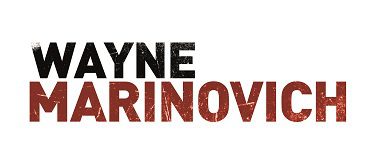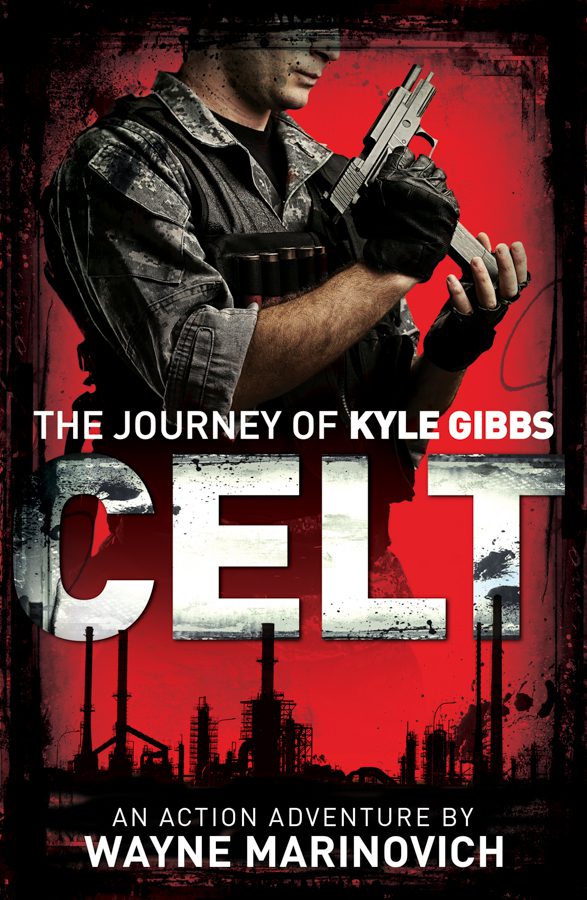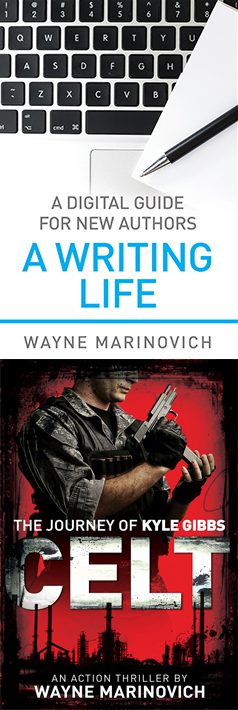Would you go back and re-edit a previously published book?
One of the first “how-to” writing books I read, back in 2008, was James N. Frey – How to write a damn good novel. The two main lessons I took away from it was that firstly, writing was a journey of learning, and secondly, I knew little about the art of writing a novel. Sure, documenting a story was easy, but writing a novel that sells was not.
In 2015, I went back and reworked the first novel in the Kyle Gibbs series. I believe that from the time I originally wrote Celt and had my editor work his magic on it, to the time of re-editing, I learnt a tremendous amount and improved as a writer technically.
Yes, people will say that they don’t have the time to go backwards in their writing career, and the general thinking out there is that as you learn you keep moving forward but I looked at it from a different perspective. Everyone updates their resumes (CV’s) as their career progresses, so why wouldn’t you treat your back catalogue as a CV, and keep your digital work current.
What did I end up doing to Celt? The overall story structure of the novel remained the same. The characters have remained the same (it is a series) although I was tempted to add to the body count. The plot and premise all remained the same. What changed then? In short, just the writing skill.
I changed many of the descriptive passages, adding descriptions in places (like at the beginning of scenes) and removing cumbersome passages (in action scenes). I believe that I’ve tightened up the dialogue by reading it out aloud to myself. I started this practice from Floodlanders and Phoenix onwards, but I never did it for Celt. Reading aloud changed a lot of the flow and intensity of the dialogue in Celt, plus it allowed me to create more intense conflict between the characters and it’s a practice I recommend to all new authors.
I also removed amateur mistakes which all newbies tend to make, for example, adding emotive tags after the character’s name in dialogue. 80% of the tags are now the lowly, “said”. Gone are the “grinned, smirked, grimaced, smiled, snapped, etc. They are emotions that are not required in any tag if your dialogue is tight and emotive.
Since writing my first novel, I’ve read many more “how to write” books as I am a self-taught type of bloke. Topics like narrative space, show vs. tell and outlining the book structure have all been listed as things I have to keep working on. My Writing Process booklet has the list of all the reference books that have helped me to start out on the road to mastering the art of writing.
The freedom of self-publishing is that there are only a few printed copies of Celt out there, and they’re in the hands of subscribers or recipients of giveaways. There are no books piled up on warehouses pallets that will need to be pulped. No books in stores that will need to be recalled. It makes it easier that I don’t have to get permission to rework my novels from any publishing house, agent and middleman which stand between my readers and me.
Will I have lost readers because I didn’t have the perfect manuscript? Of course. That is inevitable, but then again, I didn’t have a big author platform to start with. A new reader discovering the Kyle Gibbs series will hopefully enjoy a reworked Celt, then move onto book 2, Phoenix.
Part of the wondrous writing journey is to keep learning from your mistakes and carry on producing new works. With the changes in the book market, especially how readers purchase and read their books, isn’t it great to have the chance to go back and keep your work up-to-date.
To receive more writing tips, book recommendations and news of future releases, subscribe to the newsletter











